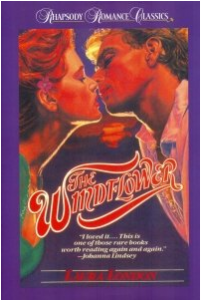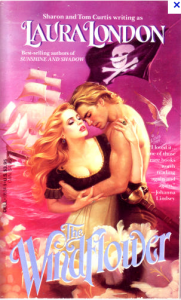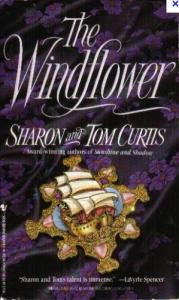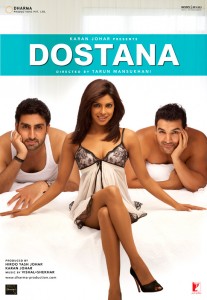One of the most beloved historical romances of all time begins with the line, “Merry Patricia Wilding was sitting on a cobblestone wall, sketching three rutabagas and daydreaming about the unicorn.”
Rutabagas and unicorns. In the first sentence. Does it get any better than that?
It does.
The year is 1814, and it’s a beautiful, hot morning in the newly hatched United States. Merry is a lovely girl who has no idea she’s lovely (no one wanted to tell her — it would only go to her head). She’s the sort of girl who can sketch the world’s most phallic vegetable and not realize it:
The rutabagas weren’t coming out right. The front one had a hairy, trailing root that jutted upward at an awkwardly foreshortened angle. Though she had corrected the drawing several times, the result remained an unhappy one.
She’s also the sort of girl who can have suggestive unicorn dreams and not understand their significance. The unicorn was the imaginary playmate of her childhood years. Of late he’s become rather more . . . aggressive.
It left her dreams and hadn’t returned for years — until last night. It had burst through the window in a frightening rush of energy, glass flying everywhere, and it had reared in the corner of the room, pawing and snorting, looking bigger than it had been before, its muscles white and glistening beneath its creamy hide, its chest broad and heaving, its horn poised and thick. . . . He wants me to ride him, she had thought in her dream. Am I too afraid?
In short, Merry is exactly the sort of girl one wants to see kidnapped by pirates. Which is precisely what happens, thank goodness.
 The novel is The Windflower, by Tom and Sharon Curtis, who published it in 1984 under the pen name Laura London. It’s an epic romance that puts innocent young Merry through the wringer. One night, she goes with her older brother to a seedy tavern, where she’ll have a look at a British operative so she can later wield her nimble pencil on behalf of the spy-busting purposes of the American side in the War of 1812. Next thing she knows, she’s been tied up, stuffed in an apple barrel, and carted off by two lowlifes who discuss whether they have time to stop and rape her on the way to their destination. (Lucky for Mary, they’re on the clock.)
The novel is The Windflower, by Tom and Sharon Curtis, who published it in 1984 under the pen name Laura London. It’s an epic romance that puts innocent young Merry through the wringer. One night, she goes with her older brother to a seedy tavern, where she’ll have a look at a British operative so she can later wield her nimble pencil on behalf of the spy-busting purposes of the American side in the War of 1812. Next thing she knows, she’s been tied up, stuffed in an apple barrel, and carted off by two lowlifes who discuss whether they have time to stop and rape her on the way to their destination. (Lucky for Mary, they’re on the clock.)
After that, it’s pretty much all piracy, rape threats, sexual awakening, discovery of backbone, and tongue-in-cheek sexual imagery, for five hundred pages.
It’s a hell of a lot of fun.
This is the second novel I’ve read by Sharon and Tom Curtis. The first was Lightning That Lingers, a contemporary that features baby owls and a patrician stripper hero. Reading that book taught me to expect Curtis books to be offbeat, intelligent, and full of wry humor. The Windflower is all that and more. It’s a solid historical, full of fascinating detail, intentionally hilarious imagery, clever figurative language (the Curtises are masters of metaphor), and a brilliant supportive cast. It made me laugh out loud repeatedly. Take, for example, this scene, where Merry is discussing her utter ignorance of sex with a maiden aunt who, it transpires, has no better idea of what it’s all about than Merry does:
She looked everywhere in the room but at her aunt. “What do pirates do to women?”
As it happened, Aunt April was as embarrassed as Merry. She went to peer miserably out the window, as if she was afraid someone was hiding outside listening, and swallowed with difficulty, as though she had an infected throat. “One would suppose — that is –” Another swallow. “One imagines that the pirates had their way with them.”
Before she lost her nerve, Merry asked, “Which way is that?”
“A perfectly normal question for a young lady at your stage in life,” said Aunt April with the nervous certainty of one trying to remain calm in the face of all hell breaking loose. She made a great play of arranging the new window curtains, the color running high over her cheekbones.
A wayward and rather poignant thought occurred to Merry. “Don’t you know either?”
The upshot? “It seems that a man — climbs on top of a woman.” Oh, dear.
The Windflower was received with acclaim in 1984, and in 1994 it won an RWA award for Best Classic Historical Romance. It regularly appears on lists of the top 100 romance novels of all time, and when I set out to buy a copy for myself (it’s out of print, but used copies aren’t hard to find), several of my Twitter friends told me it was their favorite historical romance, subject to regular re-readings.
 I can see why. But at the same time, I can’t — which makes this a difficult novel for me to gather up my thoughts about. In a way, I feel like I lack the background for it. I didn’t grow up reading the romances of the 1980s and 1990s, now so famous for their alphahole heroes and “forced seductions,” which means I don’t have any context to read this novel in but the context of present-day historical romance — and even that I only began reading this year.
I can see why. But at the same time, I can’t — which makes this a difficult novel for me to gather up my thoughts about. In a way, I feel like I lack the background for it. I didn’t grow up reading the romances of the 1980s and 1990s, now so famous for their alphahole heroes and “forced seductions,” which means I don’t have any context to read this novel in but the context of present-day historical romance — and even that I only began reading this year.
I can easily imagine why The Windflower made a splash in 1984. I can even easily understand why readers love it today. But as much as I enjoyed it, I didn’t connect with it as a romance. I connected with it on every other possible level — the craft, the characters, the humor, the tone — but I cared only slightly for Merry and Devon as a romantic unit, and when they finally got together in the last 100 pages of the novel, I got bored.
Partly, this is a personal issue. I have trouble with any sort of plot that calls for the hero and heroine to be cruel to each other for hundreds of pages while simultaneously falling in love, and Devon is frequently cruel to Merry. He threatens to whip her. He threatens to rape her. He teases her and belittles her, and while they also spend a fair amount of time making out — and while he does not, in fact, ever rape her — I found it difficult to buy that this was a romance that went any deeper than lust.
Not that lust is a bad thing. I thoroughly enjoyed being a voyeur in Merry’s attraction to Devon. He is an obscenely beautiful man — so much so that none of the other pirates on the ship can understand why Merry doesn’t want to have sex with him. “Take him to bed, damn it,” her friend-slash-protector, Cat, tells her. When Merry replies, “Never. It disgusts every feeling!” Cat says, “Christsakes, are we talking about the same man? When Devon walks down the streets of Bristol, half the population has neck strain from staring at him. We’ve got practically to hire eunuchs with scimitars to get him the rest of a chaste night.”
And of course, Merry does want to have sex with him (to the extent that she even understands what sex is). He’s gorgeous, he’s sexually exciting, and he keeps kissing her. Devon is her unicorn, of course — beautiful, enticing, frightening. I get why she wants him. I just don’t get why she loves him.
Neither does she. After she spends one idyllic day with Devon, she tells Cat about it. “If this is the way love feels . . . Is it always this painful? How do people survive? You can’t imagine what it was like this afternoon — to have him hold me and whisper love words and kiss me — and then to pull away, laughing and shivering.” Cat replies, “Devon was shivering. How were you?” And Merry says, “I wanted to retch. After, he was so kind and charming — which only made it worse. If this is love, I hate it.”
It’s a beautifully done scene. All the turmoil in the middle part of the book is beautifully done. But when the turmoil ends and the romance proper begins, I just couldn’t believe in it.
 I think one reason is that Devon is a bit of a cipher. The novel is written in third-person omniscient point of view, with such copious head-hopping and such similarity of mental processes between characters that I often lost track of whose brain I was supposed to be in. So we do get plenty of Devon’s point of view, but the plot requires the Curtises to withhold the details of Devon’s life — who he is, what makes him tick, what he wants — for so long that I never felt like I knew very much about him as a character. He’s gorgeous, powerful, connected to the British, and he wants Merry but doesn’t want to want her. For me, it just didn’t add up to a character I could care about.
I think one reason is that Devon is a bit of a cipher. The novel is written in third-person omniscient point of view, with such copious head-hopping and such similarity of mental processes between characters that I often lost track of whose brain I was supposed to be in. So we do get plenty of Devon’s point of view, but the plot requires the Curtises to withhold the details of Devon’s life — who he is, what makes him tick, what he wants — for so long that I never felt like I knew very much about him as a character. He’s gorgeous, powerful, connected to the British, and he wants Merry but doesn’t want to want her. For me, it just didn’t add up to a character I could care about.
What makes it worse is that Devon is the least interesting man on the Black Joke, the pirate ship where Merry is held captive. Several of the other pirates spend a great deal more on-page time with Merry. Pretty much all of them fall in love with her. I’m not sure if it’s supposed to be funny or not, but she comes aboard the ship all aflutter with fear that the evil pirates will ravage her any moment — a fear that her captors reinforce and seem to share — but instead she wins every man on the ship over by being naive and charming, and the next thing you know she’s wearing pantaloons and climbing the rigging and swearing like a sailor. Which, okay. It’s fun, and it’s not as though I want things to be otherwise. But you end up with a book where everyone is nicer to the heroine than the hero.
Merry becomes particularly close friends with Cat, a soul-scarred, deeply guarded survivor who goes through a rather painful emotional rebirth in the process of falling in love with her. Cat takes care of her. He soothes her, he talks to her, he makes her laugh, he protects her as best he can from the captain’s machinations. I loved Cat. I wanted him to be the hero of the book. I don’t really understand why he didn’t get to be.
I think the other reason I didn’t buy the romance was that, while The Windflower in many ways winks at and transcends the genre conventions of 1980s historical romance, the one way in which it doesn’t is in its treatment of sex. The novel’s enjoyably purple prose becomes so very purple in sexual moments that I couldn’t figure out if I was supposed to be laughing or lusting or some odd combination of both. Sometimes I couldn’t even figure out what was happening.
His hands moved with her trapped fists, pressing her backward into a crisply yielding mound of scarlet blossoms behind her on the limestone wall. Ruby flowers nodded against her cheeks and trembled among her curls, and the flood of scented blossoms fed over her arms. The grip of his hand faded on her wrist, and his candied touch spread slowly down her arm and became a feather stroke on her breast. The unhurried glide of his fingertips was a banquet to her senses, and yet the raking invasion of love fluids was excruciating to her delicate tissues, and there was pain in the erotic ache of her moan. His fingers abandoned her breast briefly and searched the flowers for her childish wrist, and after he had discovered her white hand, he carried it back to her breasts. Inserting his hand into the cup of her much smaller, squarer palm, he whispered, smiling, “Ah, love, you’re as dainty as a toy. Show me, Merry. Show me how you want me to touch your body.”
Could the same person who wrote about the rutabagas also have written that passage? It seems so impossible to me that I wonder if one Curtis wrote the sex parts and the other wrote the the funny bits. The novel is at times so earthy and practical, and at other times so over-the-top swoony about love, that I lost track of what I was supposed to be winking at and what I was supposed to be swept away by, and I guess the tidal wave of lust just passed right over me.
But you know what? That’s okay. While I wish I’d been able to love everything about this wonky, epic, wonderful book, it’s a good reminder to writer-me that novels don’t have to be perfect — or even anything close to perfect — in order for readers to love them.
For all its flaws, I won’t forget The Windflower, and I could never be sorry I’d read it.
Want to experience this epic of wonk for yourself? Leave a comment! I’ll mail my copy of The Windflower to one random commenter. — Updated to add, we have a winner! Ana, I’m going to shoot you an e-mail. This Windflower wonk is all yours!
 At the urging of my dance teacher, who is a Bollywood devotee, I watched the movie Dostana. I’m not experienced enough to know whether this movie is particularly wonked by Bollywood standards, but I know it’s wonked by American movie standards, deliciously so.
At the urging of my dance teacher, who is a Bollywood devotee, I watched the movie Dostana. I’m not experienced enough to know whether this movie is particularly wonked by Bollywood standards, but I know it’s wonked by American movie standards, deliciously so.



 And yet, there’s something so intriguing about a man who hasn’t done the deed. Let’s be real here, even if you don’t buy into the whole “men would never turn down sex” crap, there still has to be a good reason. It implies a certain restraint… and restraint at the beginning of a book means only one thing: it will be tested and tested until it breaks!
And yet, there’s something so intriguing about a man who hasn’t done the deed. Let’s be real here, even if you don’t buy into the whole “men would never turn down sex” crap, there still has to be a good reason. It implies a certain restraint… and restraint at the beginning of a book means only one thing: it will be tested and tested until it breaks! Another virgin hero who I love is the hero in Kathleen O’Reilly’s Touched by Fire. Seriously, don’t judge these books by their cover. Thank God for the Kindle. It’s not because I’m ashamed of other people seeing what I’m reading, it’s because I don’t want to look upon that cover!
Another virgin hero who I love is the hero in Kathleen O’Reilly’s Touched by Fire. Seriously, don’t judge these books by their cover. Thank God for the Kindle. It’s not because I’m ashamed of other people seeing what I’m reading, it’s because I don’t want to look upon that cover! All these mentioned so far have been historicals. I suppose, as
All these mentioned so far have been historicals. I suppose, as 



















